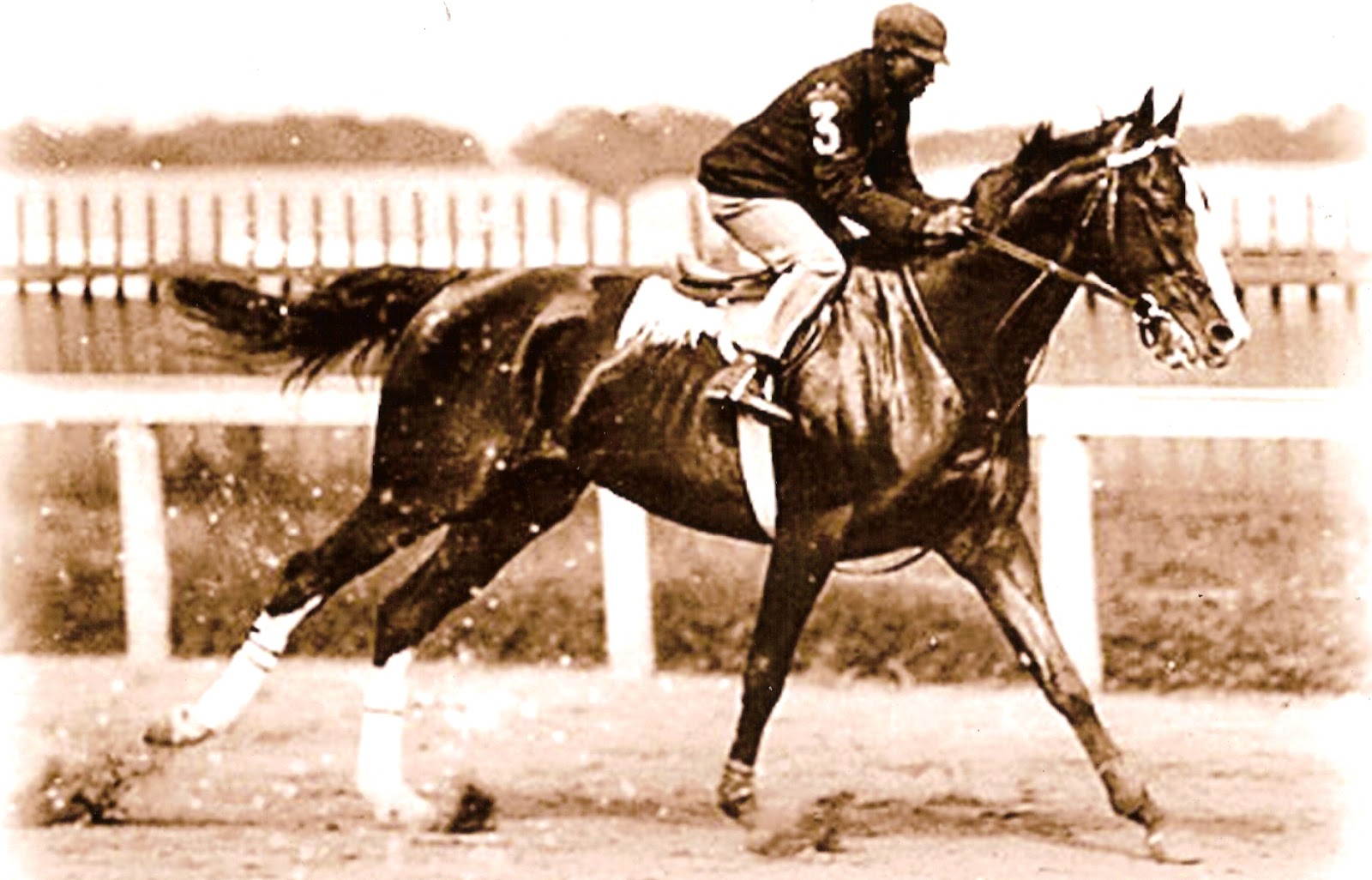A child of a freed slave, Isaac Murphy, deep-rooted in the history of horse racing became the first person to win the Kentucky Derby three times.
The Kentucky Derby is the longest-running sporting event in the United States, dating back to 1875. The race is often referred to as “The Run for the Roses” and has continuously produced “the most exciting two minutes in sports”; uninterrupted, even when coinciding with profound historical events like The Great Depression and World Wars I & II.
There are few American sporting events with the history and popularity of the Kentucky Derby. It transcends just a sporting event, it is a celebration of southern culture and a true icon of Americana.
That’s the competition Murphy, who was born into slavery in 1861 won effortlessly on three occasions, becoming the United States’ highest-paid athlete. Murphy also had the best winning average in horse-racing history.
The journey
Murphy was born on a farm near Frankfort, Kentucky as Isaac Burns on April 16, 1861. He was born to parents James Burns and a mother whose name is still unknown.
Burns joined the Union Army during the civil war and after his death in the war, Murphy and his mother moved to live with maternal grandfather, Green Murphy. Murphy’s mother started work at the Richard and Owings Racing Stable after their move.
He started following his mother to work and that’s whence a black trainer named Eli Jordan took an interest in the young Murphy. Jordan trained and prepared Murphy for his first race at the age of 14.
His first winning race was on September 15, 1875, at the Lexington Crab Orchard. Murphy did something spectacular during that win, he rode upright and urged his mount instead of using the whip.
“A majority of successful African American jockeys and trainers of the middle to late 19th century had been raised around horses since birth and rode as the property of their masters,” Pellom McDaniels III, curator of African American collections at Emory University and the author of The Prince of Jockeys: The Life of Isaac Burns Murphy, said.
“During Reconstruction and to end of the 19th century,” he told Timeline “these same jockeys and trainers would have been the talent used to develop the thoroughbred horses found in the South.”
By the end of 1876, Murphy had won 11 races at the Lexington’s Kentucky Association track. He won 19 races in 1877 and rode in his first Kentucky Derby coming fourth.
National attention and Kentucky wins
Murphy’s rise to national attention came for the first time after his 1879 win at the Travers Stakes at Saratoga Springs.
Murphy’s first Kentucky Derby win came May 27, 1884, at Churchill Downs. Two more victories followed in 1890 and 1891.
Murphy raced in the most memorable contest of his life on June 25, 1890. He was pitched against Ed “Snapper” Garrison. Garrison was the most famous white jockey in the sport that was changing rapidly. More white jockeys entered the sport when they realized the prize purses and accolades being given to black jockeys.
Murphy was victorious, beating Garrison easily in the contest that had extreme racial undertones. Murphy’s incredible feat was downplayed by journalists and many others.

Murphy also won in 1884 the American Derby in Chicago, Illinois. He would repeat the feat in 1885, 1886 and 1888. Murphy throughout his career, rode 628 winners in his 1,412 mounts, including the three Kentucky Derby winners. He has the best winning average in history to date with better than 34 percent.
At the height of his career, Murphy received an average yearly salary of $10,000-20,000 excluding bonuses, making him the highest-paid jockey in the United States. He lived in a mansion in Lexington and it is believed he was the first African American to own a racehorse, owning several and invested in real estate as well.
Fall from grace
Murphy’s fame would soon begin to fall after his memorable victory against Garrison. He was suspended two months after that historic feat for racing while intoxicated and McDaniels believes he was sabotaged.
“When the amount of money a jockey could make increased, white men and boys gravitated towards the sport and began colluding to exclude African American jockeys from the major contracts available,” he explained.
“African American men not only sought to challenge the outright claim to male power white men had long coveted as their birthright but increasingly used public competitions to prove their fitness for equal footing in the United States,” he explained. “Essentially, like boxing, baseball, and other occupations that allowed African American men to compete with white men, white Americans rejected any and all representations of equality in support of a white-dominant society,” he added.
That notwithstanding, he made a comeback and competed and won fever races battled both alcohol abuse and weight gain. Murphy was suspended in 1895 for the second time, because of intoxication. He failed to win a single race that same year and was forced to retire.
Murphy died three months later from pneumonia.










